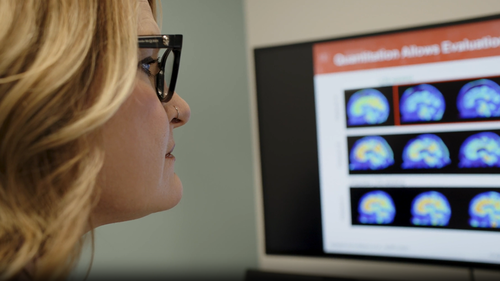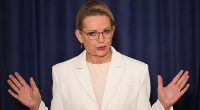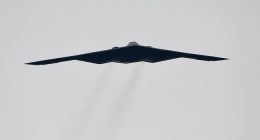A first-of-its-kind treatment to slow the symptoms of early Alzheimer’s disease has been approved for use in Australia.
The Therapeutic Goods Administration has registered pharmaceutical giant Eli Lilly’s drug Kisunla (donanemab) for use by those with early symptomatic Alzheimer’s who also have a presence of amyloid plaque, or protein clumps in the brain.
A build-up of plaque causes issues associated with the neurodegenerative disease, like memory loss and impaired thinking.

The drug is administered through a monthly infusion over a maximum of 18 months and works to clear plaque from the brain.
Kisunla is the first new treatment for early Alzheimer’s in 25 years and the first treatment registered in Australia that works to address the underlying cause of the disease, according to Eli Lilly.
An estimated 600,000 Australians currently live with Alzheimer’s with about 450,000 of those able to be tested to assess their eligibility.
This has been hailed as a breakthrough by the researcher who led the clinical trials in Australia.
“As clinicians, we’ve been waiting a very long time to be able to offer patients a treatment of this nature,” Austin Health’s Head of Dementia Research Professor Michael Woodward said.

“There is an important window of opportunity when it is possible to detect, diagnose and treat Alzheimer’s disease with the goal that patients can maintain their independence for longer.
“The availability of donanemab is a major development at a time when more and more Australians and their families are being impacted by this insidious disease.”
The drug is not listed on the Pharmaceutical Benefits Scheme (PBS), meaning that it would cost patients $4700 per session or $84,600 over the recommended 18 months.
An application to include the drug on the PBS will be reviewed in July.
Donanemab is approved in the United States, Japan, China, the United Kingdom, United Arab Emirates, Qatar, Kuwait, Bahrain, Singapore, Taiwan, Brazil, Mexico and Australia.





